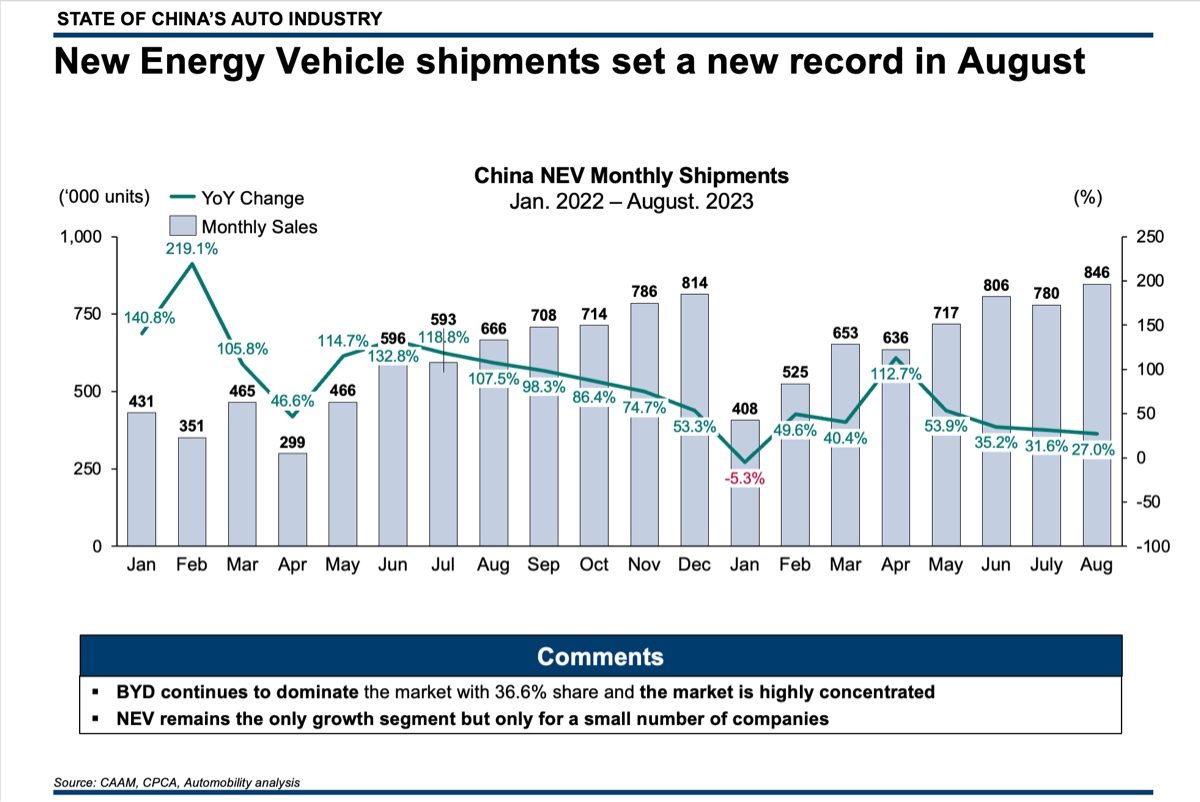31 Oct Fortune : Elon Musk and Tesla can perhaps breathe a small sigh of relief as they reportedly get a reprieve from the EU’s China EV probe
Media Source : Fortune
by LIONEL LIM
October 27, 2023 at 5:13 PM GMT+8

Tesla CEO Elon Musk could be getting some good news on the regulatory front, following weeks of bad headlines for him and his EV company.
Earlier this month, the European Union officially announced a probe into China-manufactured electric cars, alleging that the vehicles had received unfair state subsidies. European officials and carmakers are worried that Chinese manufacturers are ready to drown the market in cheap EVs, unfairly muscling out local carmakers as they try to catch up. Tesla, despite being a U.S. carmaker, manufactures half its cars in its massive Shanghai factory, many of which are bound for Europe, potentially putting the company at risk of getting swept up in the probe.
Yet Musk may be escaping Europe’s regulatory scrutiny, at least for now. The U.S. carmaker is not being investigated by regulators over market-distorting subsidies, reports the South China Morning Post. The EU is instead reportedly focusing on three Chinese manufacturers, namely BYD, SAIC Motor, and Geely.
Tesla has enough problems to worry about.
The EV maker reported weaker-than-expected third quarter earnings on Oct. 18, including a 44% year-on-year decline in net income to $1.85 billion. Tesla also reported its lowest quarterly earnings per share in two years. Musk, during the earnings call, warned that the company might not be able to sell its hotly anticipated, yet long-delayed, Cybertruck at a price affordable for most consumers.
The company also confirmed earlier this week that it was facing several probes from the U.S. Department of Justice, focusing on the advertised range of its vehicles and the possible misuse of personal benefits for Musk.
Tesla faces fierce competition in China, the world’s largest EV market. Last month, Tesla sales sunk by almost 11% year on year, despite the company embarking on a yearlong price war with rivals like BYD and Nio.
The company is now stuck trying to balance its profit margins with price cuts. On Friday, Tesla said it would increase the Chinese price of its Model Y SUV by around $2,000.
“This is an effort to raise [the] average selling price on the premium niche offering,” Bill Russo, an EV analyst based in Shanghai, says. Consumers of Tesla’s premium models may be less price conscious, he suggests.
Tesla did not immediately respond to a request for comment.
China’s EV subsidies
The EU’s investigation, officially launched on Oct. 4, is trying to ascertain if electric-auto makers in China are receiving unfair subsidies. In an interview with the Financial Times in late September, EU Commissioner for Trade Valdis Dombrovskis said there was “sufficient prima facie evidence” to justify the probe, and warned that it may not be limited to just Chinese manufacturers. The European Commission President Ursula von der Leyen has also complained that Chinese state subsidies are keeping prices artificially low.
Tesla has a huge operation in China. Production at its gigafactory in Shanghai surpassed the company’s plant in Fremont, Calif., in 2021. Tesla produced its 2 millionth EV in Shanghai last month, despite only starting operations in late 2019.
Tesla accounted for 39% of all EV exports from China in the first six months of this year, according to data compiled by the Center for Strategic and International Studies. China has now overtaken Germany and Japan to become the world’s largest auto exporter.
Beijing helps boost domestic EV production through policies like production subsidies, cheap land and loans, and grants. Subsidies for electric and hybrid vehicles amounted to $57 billion between 2016 and 2022, according to one estimate from consulting firm AlixPartners.



Sorry, the comment form is closed at this time.